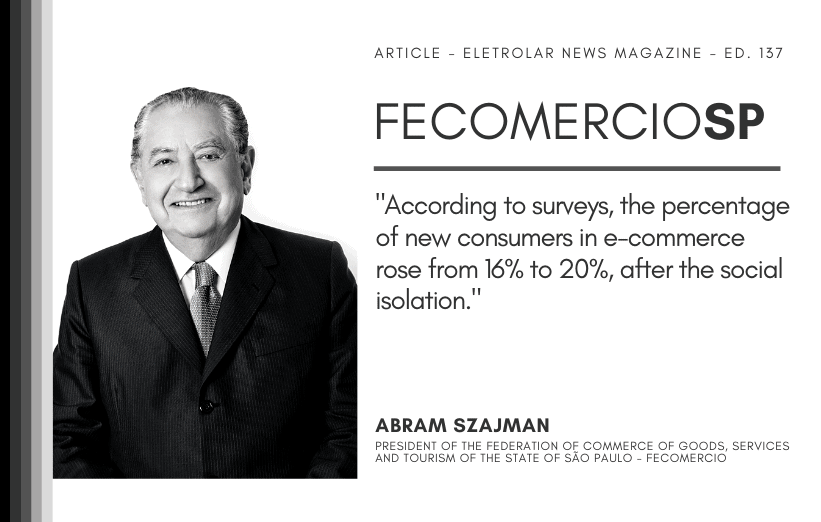
FECOMERCIOSP: PERSPECTIVES FOR POST-PANDEMIC RETAIL
In July, three months after the imposition of social isolation measures because of the Covid-19 pandemic, the commerce and services sectors began the process of gradual reopening, following the recommendations of the government and public health agencies. The retail sector was one of the most affected, and some activities had an 80% drop in the average daily turnover. In the period, the sector suffered in three important dates: Easter, Mother’s Day and Valentine’s Day.
To recover this loss, in addition to the review of management aspects – such as inventories and cash flow – the retailer must be prepared to meet possible changes in consumer behavior. It will be up to each segment to evaluate the changes and understand which ones will be permanent and which will be restricted to the pandemic period, to (re)plan strategies.
Business digitization, for example, has become mandatory, and many consumers have had their first online shopping experience. According to the Webshoppers report, produced by Ebit/Nielsen, the percentage of new consumers in e-commerce rose from 16%, in the weeks prior to the quarantine and 20%, with social isolation measures.
The electronics and computing sectors had better-than-expected sales, indicating that, in addition to measures to ease labor legislation and pay emergency aid, the need for technological upgrades is a reality for companies that have started to operate at home office.
Loss projections are around BRL 115 billion in national retail revenue in 2020, which represents a decrease of approximately 6% compared to 2019. The stakes are high. For this reason, FecomercioSP has been guiding companies in legal and economic aspects, and preparing studies that can help them to ensure the survival of their businesses.
Source: Eletrolar News Magazine #137





